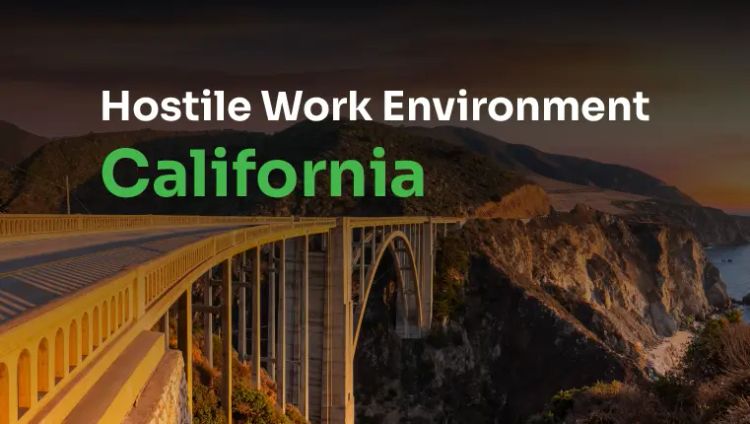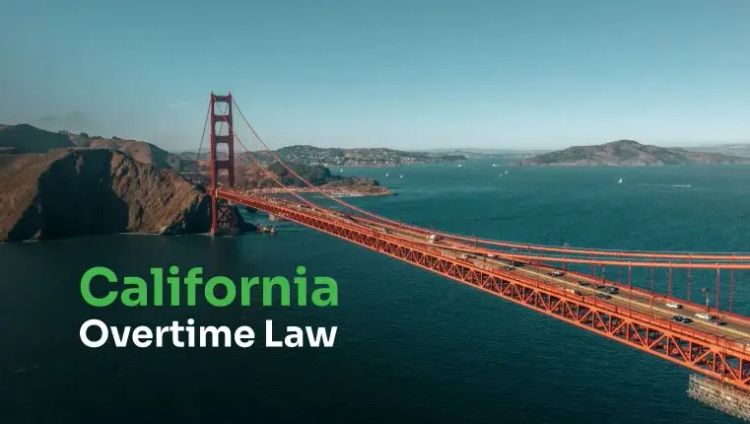Labor and Employment Attorneys
- Our Practice Areas
Labor and Employment Attorneys
Fight Workplace Discrimination with Experienced Labor & Employment Lawyers - Get Legal Help Today!
Individual work-related labor issues can sometimes be difficult to pinpoint. Other times, discrimination in the workplace is so open and egregious that it is obvious. Regardless of your situation, if you are facing or have faced workplace discrimination or had your rights violated, hiring a competent attorney is crucial. Our attorneys at Consumer Attorneys understand workers’ rights including wage payments, discrimination, harassment, and wrongful termination, among others.
If you think that your rights were violated, get in touch with our labor and employment attorneys to get the help you deserve!
What Does Labor Law Cover?
Labor law covers a variety of principles. Labor laws are in place to protect both employers and employees with regard to the work environment. A simple way to look at it is that labor law covers what can and cannot be said and done in a work environment. It also covers special classes of people, like those of a particular national origin and age. Moreover, it dictates pay scales, overtime wage rates, breaks, and workplace safety, among other things. Some key areas of labor law include:
- Minimum wage and overtime pay stipulations
- Regulations requiring meal and rest breaks
- Workplace health and safety standards
- Anti-discrimination protections
What Do Labor Lawyers Do?
Labor and employment attorneys assist when people in workplaces engage in discriminatory practices that are against the law. Labor attorneys advocate for both employers and employees, although it’s more common for labor law attorneys (like Consumer Attorneys) to advocate for employees when they have faced discriminatory practices. Labor and employment attorneys campaign for compliance and also act as a legal voice for employees in claims against employers.
When Do You Need a Labor Lawyer?
You may need a labor lawyer if you are an employer and have questions, but more commonly, when you are an employee and you believe your employer has participated in any of the following:
- Unpaid or underpaid minimum wages
- Requiring you to work overtime without pay
- Have forced employees to work in unsafe and/or hostile work conditions
- Denied you reasonable accommodations as required by the ADA
- Discriminated against you because of your gender or sex, race, age, or national origin
Which Industries Have the Most Overtime and Minimum Wage Violations?
It’s unfortunate, but there are some employers who take the labor and employment relationship with their employees for granted. There are industries that have, at times, required employees to work for very low wages and often violate overtime and minimum wage laws. The industries that we most commonly see this in include the food service, retail, home care, janitorial services, and construction industries. This list isn’t exhaustive, and minimum wage and overtime wage violations occur in many industries!
Labor Lawyers’ Fees
Every attorney is different and typically has the freedom to set their fees as long as they are fair and reasonable. Generally speaking, many labor and employment attorneys work on a contingency basis which means that they are only entitled to a certain amount of money that they recover on your behalf in settlements or lawsuits. This can change and is different for all attorneys so it’s best to speak with an attorney to know exactly what their fees are.
What Will You Get When Working with a Labor Lawyer?
A labor lawyer is one who gives sound advice, advocates for you according to labor relations and employment laws, and works to secure a settlement or win a lawsuit on your behalf. An attorney will also be skilled in employment litigation. Prior to the settlement or lawsuit phase, a good labor lawyer will examine your situation and determine if you have a viable case against your employer. This requires labor lawyers to review the facts of your situation, relevant laws, similar cases, and more.
What Does Employment Law Cover?
The U.S. Department of Labor provides an overview and resources as it pertains to the American workplace. It administers and enforces most of the employment laws on the federal side, which include everything from wages, working hours, and health and safety standards, to retirement and employee benefits. Additionally, labor and employment practices, termination of employment, labor relations, FMLA, and more are covered under employment law.
What Do Employment Attorneys Do?
Employment attorneys help both employees and employers with complicated workplace regulations and state and federal laws. With regard to workers, employment attorneys are involved in cases where an employee is mistreated, is involved in labor disputes, faces harassment, isn’t provided accommodations for disabilities, is denied family leave, etc.
When Do You Need an Employment Lawyer?
If you have googled either of the following, you may need an employment lawyer: labor lawyers near me or labor attorney near me. Consumers often need employment lawyers when any of the circumstances above are in question. For instance, if you believe you have faced labor disputes provided by the law, like being discriminated against based on your gender or have faced harassment or were treated differently because you’ve asked for accommodations due to a disability (after following protocol), then you are likely in need of an employment attorney in case your situation requires court and litigation.
Discrimination at Work
Discrimination can present itself in many forms. Essentially, discrimination at work violates labor and employment laws and can be in the form of harassment, stalking, threats, unfair labor practices, unsafe working conditions, and much more. Anything that violates what the U.S. Department of Labor and other laws set in place is in violation of work codes of conduct that must be followed to ensure a safe work environment.
Hostile Work Environment
A hostile work environment is sometimes hard to define and because of this, some employees fail to report unfair labor practices and hostile work environments. A hostile work environment is usually one that subjects certain employees to harassment or bullying of any kind in the workplace. Most cases are based on gender, race, or any other protected class of people.
Sexual Harassment in the Workplace
The EEOC is very clear that employees are protected against sexual harassment in the workplace. It is unlawful to harass applicants or employees based on their sex. Sexual harassment occurs when you face any unwelcome sexual advances or if someone requests sexual favors from you. Additionally, any other physical or verbal harassment that is considered to be sexual in nature usually rises to the level of sexual harassment.
Wage & Overtime
If you worked and you were not compensated properly, your employer may have violated labor and employment laws. This applies to both regular and overtime wages.
Severance Negotiation
If you and your employer decide to part ways under certain conditions, you may be required to sign various agreements or contracts known as a severance negotiation or severance agreement. Before signing and agreeing to any terms, you should contact an attorney to determine if the agreement is fair and equitable.
Wrongful Termination
Wrongful termination is WRONG! This means an employer fired or “terminated” an employee based on unlawful grounds due to discrimination and in violation of the law. Additionally, dismissal may be due to sexual harassment, or because you took protected leave, requested accommodations, or reported illegal activities. Your situation may be different from what we’ve included in this article. Regardless of the circumstances, we want to hear from you!
Employment Lawyers’ Fees
Employment lawyers’ fees are the same as labor lawyers’ fees. Labor lawyers and employment lawyers are used interchangeably and often refer to the same type of attorney, which is one practicing labor and employment law. To that end, the same rules mentioned above regarding fee arrangements apply.
What Will You Get When Working with an Employment Lawyer?
What you will get when working with an employment lawyer should be discussed during a consultation. The attorney should discuss whether they believe you have a viable case and what they will assist you with going forward. Typically, a good labor lawyer will be able to help you when you are discriminated against in the workplace and help you recoup lost income, help with reasonable accommodations, negotiate severance packages, and file lawsuits with the court for you.
Who Can We Help?
Our team of employment and labor lawyers represents workers across industries who have experienced discrimination in the workplace. We help people who have experienced sexual harassment, been underpaid, worked in hostile work environments, been wrongfully terminated, faced threats and backlash after requesting accommodations, and more! No matter your situation, we want to hear from you!
Frequently Asked Questions
An employment and labor law attorney will advise you of your rights concerning labor laws, determine if your employer refused to comply with those laws, file a complaint on your behalf, and advocate for you to either gain a settlement or win a lawsuit. Ultimately what a labor law attorney will do for you is ensure your rights are upheld and help you hold an employer accountable when they’ve violated your rights according to state and federal law. An attorney skilled in labor law can help with your claim from start to finish and can be the difference between a large settlement or allowing your employer’s actions to go unchecked.
You should call a labor law attorney as soon as you believe your rights have been violated. This can mean you weren’t paid minimum wage or overtime pay, or you were discriminated against based on your gender, race, or national origin. If you are required to work in an unsafe environment and required to work under hostile conditions in which you are subjected to sexual harassment or experience physical or verbal abuse from an employer because you requested time off. Whatever the reason, the lawyers at Consumer Attorneys want to hear from you!
Generally, discrimination at work appears if an employee or applicant is treated less favorably due to their race, religion, color, sex, gender, national origin, or disability status, etc. Discrimination can show up overtly or covertly through microaggressions and other often “hidden” forms of discrimination that are not really “hidden,” because their effect and impact are profound for employees on the receiving end. In fact, the impact of discrimination is so pervasive that it can affect not only your work life but it sometimes permeates into your personal life. If you’ve suffered, you are not alone, and we are confident we can help you.
A highly qualified labor attorney will assess the facts of your case as well as the circumstances around it in order to come up with the best solution. When filing a lawsuit based on discrimination under labor law, you should be sure you have advocates on your side who know the law and have a history of winning labor lawsuits for their clients. Consumer Attorneys law firm is ready to fight for you just like we’ve done for hundreds of clients. We’ve won millions for our clients. We do not tolerate discrimination, and neither should you!
Related Articles













